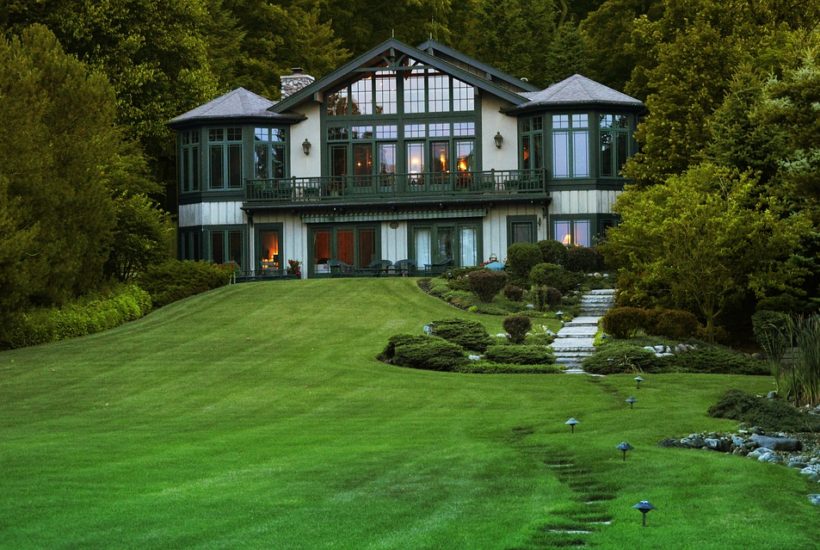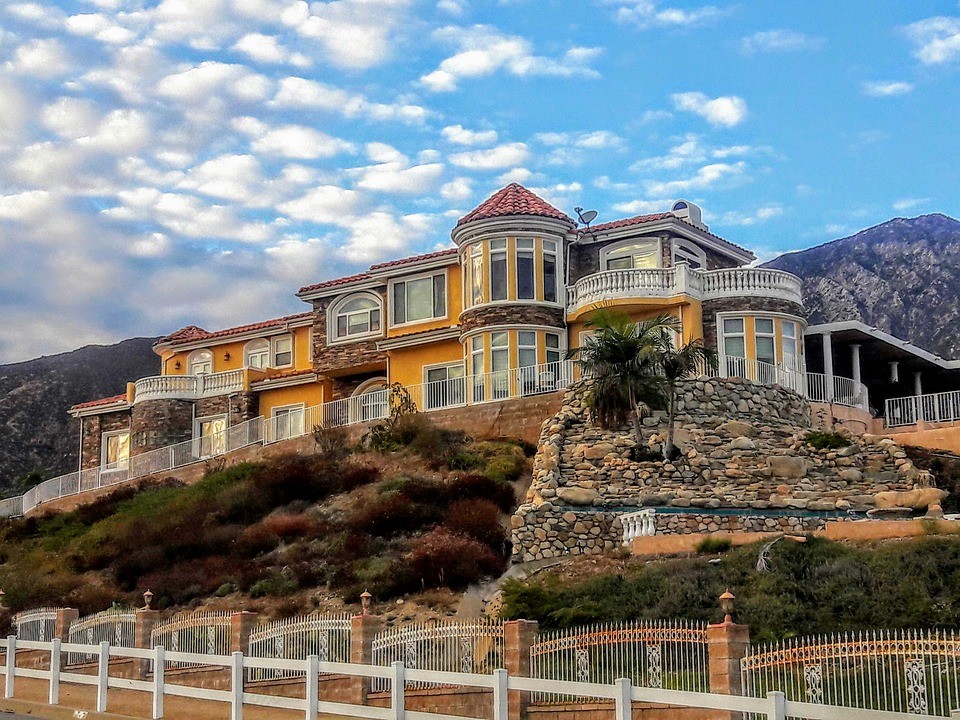Business
In home buying, is a bigger home the better home?
Is a bigger home better? The advantages are life change adaptability, more storage, and more outlets. Yet, the disadvantages will prove disastrous financially, leaving many homeowners house poor. Besides paying bills, expect to spend money buying additional furniture to fill rooms and maintaining the exterior. Buyers must evaluate their reasons behind buying a bigger home and choose wisely.

Home and garden TV shows, entertainment news programs, home magazines, and home makeover shows teach society that bigger is better. A larger home with spacious landscapes, updated home amenities, and breathtaking scenery is the ‘ideal’ way to live life. McMansions, striking photographs, and movie/TV characters going gaga over a larger home add to the ideal image. In reality, is a bigger home a better option?
Bigger IS Better
A large house signals good living and the new American Dream. It’s not enough to own a starter home or a small 1-2 bedroom home. A large home is a home that adapts to life changes. A single person can invite his or her spouse into the home, changing the home’s meaning. The home changes again when children fill it. The home changes again during ’empty nest’ time, where parents can rely on the large home’s price tag as a nest egg for retirement or downsizing. A large home can handle houseguests, self-employed workers (home office), and growing children (from playrooms to dens). Last, large homes offer more storage and outlets.
With Great Power…
With more space comes more responsibility. On the financial side, expect bills from utilities, mortgage payments, property tax, and home insurance to increase. Since those bills fluctuate, finding adequate funds to maintain the high cost is frustrating. This comes before unrelated, yet supplemental monthly payments such as cell phone bills, car payments, car insurance, life insurance, health insurance, cable/streaming subscriptions, credit card bills, medical bills, and groceries. Buyers-turned-homeowners will go broke, or house poor, maintaining the finances. Expect higher fuel costs (and stress) if the neighborhood comes with a longer commute and distant amenities.
The flip side is filling and maintaining the big space. More furniture, drapes, and artwork are necessary to fill the home. It takes longer to paint and decorate the home inside and out. Daily vacuuming, mopping, sweeping, and dusting the interior are time consuming, but don’t forget to include exterior chores such as patio/porch maintenance, driveway/walkway sweeping, and garage/carpool cleaning. As far as maintenance, the expansive home will cost more to remodel or repair, especially roofing, flooring, window repair, driveway installation, and plumbing. Tack on seasonal exterior activities like landscaping services, snow cleanup, extermination services, and pool/spa maintenance to the already expensive cost. Rearranging items from one room to another is also stressful and time consuming due to the expansive interior.
How the Market Views Big Homes
In home selling, a well-kept secret is larger homes take longer to sell, especially in neighborhoods where large homes are the exception rather than the rule. More buyers are searching for small or medium-sized homes over a large home. Those buyers seek a starter home or downsizing from a larger home. The seller has to attract move-up buyers because those buyers seek big homes. However, those buyers are selective too. The home must stand apart from competitive large homes to sell quickly. Meanwhile, moving out once the home sells is equally challenging because there’s more stuff to pack, load, and unload.
Go Big or Go Back Home
Here’s a second secret: big homes are not similar. Most large homes have smaller rooms. The lot assigned to a home builder is small, so construction workers build first and second story homes on the space allotted. The result is a layout yielding smaller rooms with a cramped feel. However, if big remains better, be selective.
Buyers need a reason to move up. Determine why the larger space is necessary by analyzing each room. Is a large kitchen necessary if no one cooks? Is a spa bathroom necessary for one person? Do that many people visit or live in a six-bedroom home? A real estate agent can help address these sample questions and more.
Each room needs a purpose, and the buyer must answer for all rooms before buying it. Never buy more rooms just to leave it empty. It’s a waste of money. Rooms deemed flexible should serve a purpose too.

Is the reason for a bigger home bigger space? Big homes with spacious rooms are rare. A smaller home may have the desired bigger space per room. Pay attention to the home layout, acres, and square footage while house hunting.
Is it more important to have a big house or money to spend? A big house drains finances dry, leaving fewer chances of having fun, school-related finances, or emergency nest eggs. Don’t buy a home unless there’s a consistent stream of income to maintain it.
Come down from cloud nine and settle into reality. A big home is a wonderful investment, but is the bank account ready to handle the responsibilities too? It’s better to have a home with a money cushion than living house poor. Bigger is only better if buyers can afford it employed and unemployed.
—
DISCLAIMER: This article expresses my own ideas and opinions. Any information I have shared are from sources that I believe to be reliable and accurate. I did not receive any financial compensation for writing this post, nor do I own any shares in any company I’ve mentioned. I encourage any reader to do their own diligent research first before making any investment decisions.

-

 Biotech4 days ago
Biotech4 days agoInterministerial Commission on Drug Prices Approves New Drugs and Expanded Treatment Funding
-

 Africa2 weeks ago
Africa2 weeks agoMorocco’s Tax Reforms Show Tangible Results
-

 Fintech13 minutes ago
Fintech13 minutes agoPomelo Raises $160 Million to Power AI-Driven Digital Payments Across Latin America
-

 Biotech1 week ago
Biotech1 week agoUniversal Nanoparticle Platform Enables Multi-Isotope Cancer Diagnosis and Therapy
























